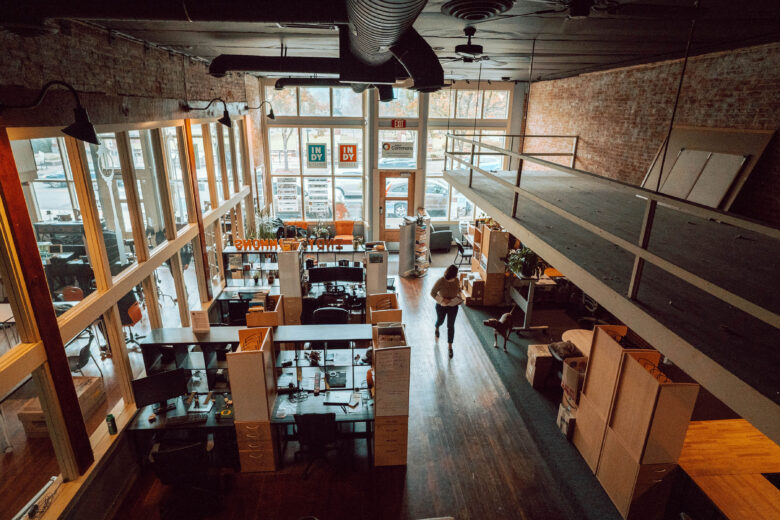
The Indy Commons Coworking Space in Independence, Oregon.
Entrepreneurs across rural America are increasingly recognizing that small towns offer distinct advantages for building successful startups. Rural communities provide tight-knit networks, authentic relationships, lower operational costs, and access to unique opportunities that urban environments often can’t match.
During our recent trip to Independence, Oregon, the CORI Entrepreneurship Team worked with local leaders to assess the feasibility of launching a startup accelerator at the Indy Commons Coworking Space. What we found was a community with exceptional assets for supporting entrepreneurs, ready to create programming that leverages their strengths while incorporating proven accelerator methodologies.
Our experience in Independence revealed the key to building successful programs happens when innovators don’t try to replicate Silicon Valley, but rather combine community strengths with proven startup strategies. This starts with listening to the community, prioritizing founder success, and designing hybrid approaches that pair tech development with local assets. The combination of authentic community support, lower operational costs, and emerging technologies like AI creates unprecedented opportunities for place-based entrepreneurship.
Meeting Winston and the Indy Commons Team
Our journey began with a tour of the Indy Commons, led by Winston (the three-legged caretaker and chief pet officer). The facility, run by entrepreneurial Independence Mayor Kate Schwarzler, combines traditional coworking and startup resources with a commercial kitchen incubator, creating unique opportunities for both tech startups and food entrepreneurs to cross-pollinate ideas.
This hybrid approach is a prime example of inclusive rural innovation. While major programs might focus exclusively on tech, rural accelerators can create value by supporting the full spectrum of local entrepreneurship, ranging from the local kombucha brewer developing an automated production app effective enough to be its own startup, to the AgTech startup developing livestock health tracking systems.
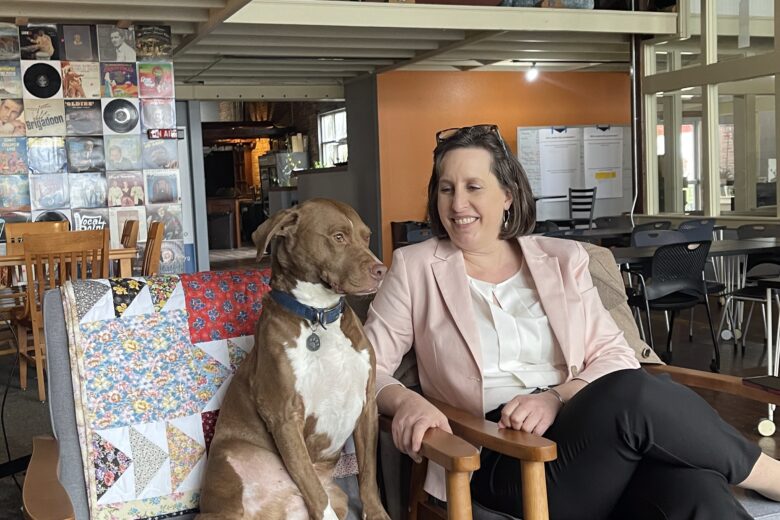
Independence, Oregon Mayor Kate Schwarzler and Indy Commons' mascot, Winston, who is always ready for the next pitch.
Three Focus Groups: Listening to Local Voices
Instead of providing a predetermined model, we began by listening to and co-creating with those who would ultimately build, run, and participate in the programs that needed development. As any startup founder knows, the cardinal rule is to build something people actually want, accelerators included.
Building on Existing Strengths
Our first focus group brought together city leaders, the AgTech accelerator, and current entrepreneurship program coordinators. The conversation revealed a deep understanding that a new accelerator wouldn’t replace existing functions but serve as a coordination hub – helping founders navigate available resources while providing structured programming and mentorship.
A defining strength in rural entrepreneurship is natural collaboration. Rather than focusing on competition, entrepreneurs can come together, building an environment of shared success.
The Founder Circle: Understanding Real Needs
The second focus group brought together existing and potential entrepreneurs from across Independence’s ecosystem. The conversation immediately revealed a powerful trend as to why rural communities are the location of choice for rural founders. As one stated, “Remote work lets us stay in a place we love.” This simple statement captures a major shift in how entrepreneurs are thinking about location.
One of the most exciting things we saw was how local founders are using AI to grow their businesses and creating opportunities that have historically felt out of reach. These bootstrapped entrepreneurs are writing business plans, launching marketing ideas, and automating daily tasks that would normally take a whole team.
The group also highlighted rural entrepreneurship’s most distinctive advantage: genuine community support. A local pizza shop became the kombucha brewer’s first commercial client, providing crucial validation that helped the beverage founder secure retail distribution.
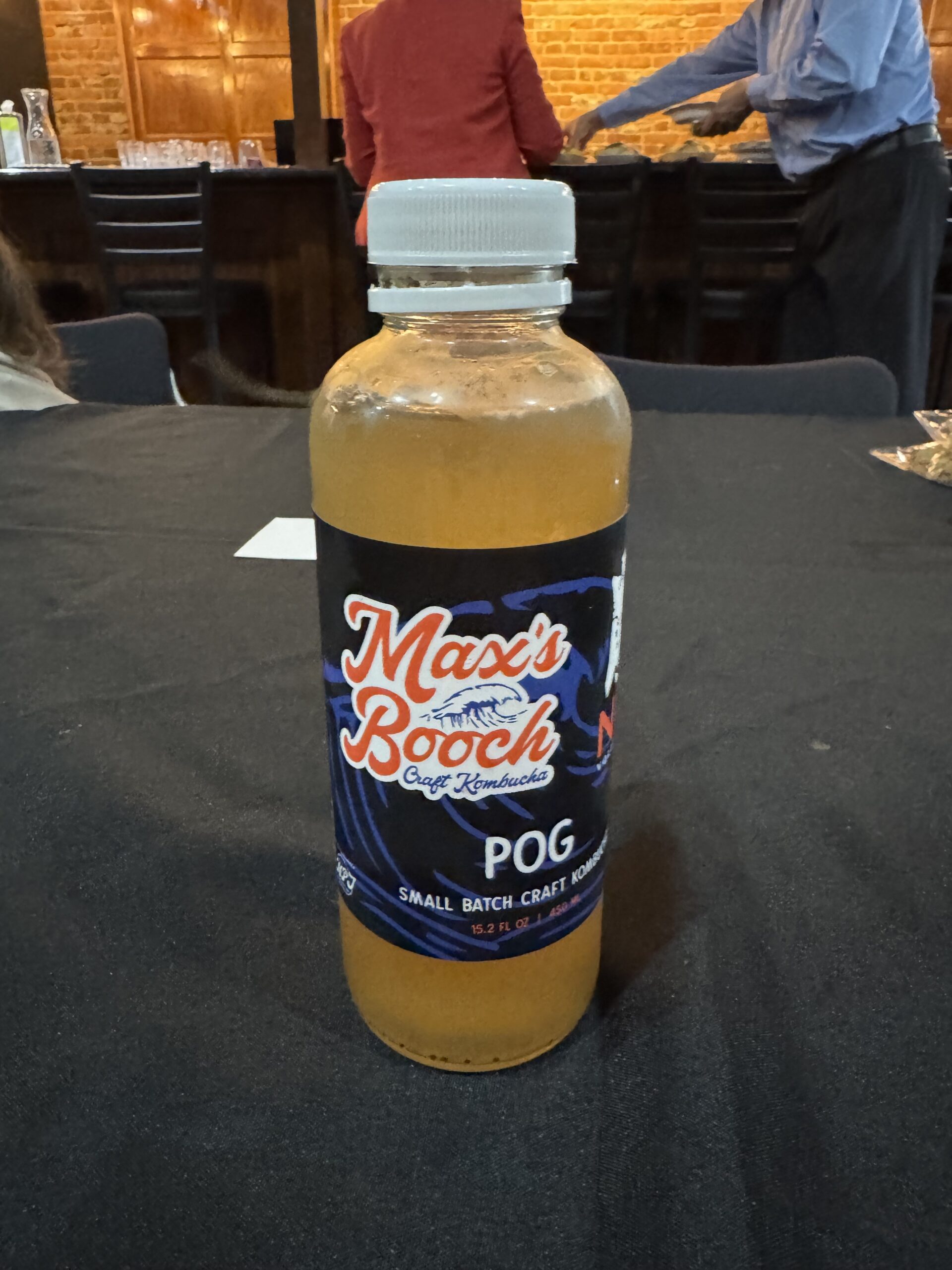

Inclusive Innovation
Our third group focused on ensuring Independence’s substantial Latino population– nearly 40% – has equal access to entrepreneurship. The conversation focused on practical strategies: Spanish-language materials, partnerships with Latino organizations, and mentorship networks that reflect diversity. Latino entrepreneurs represent significant untapped innovation potential, bringing unique perspectives and cultural connections that can drive business growth.
Beyond Focus Groups: Community Immersion
Our community engagement extended beyond formal sessions. We took the local trolley (on the town’s annual “Dress Like Fred Rogers Day”) to visit Western Oregon University, discussing how to integrate student entrepreneurship into the broader innovation ecosystem. We also attended Independence’s State of the City presentation to understand how entrepreneurship fits into comprehensive community development.
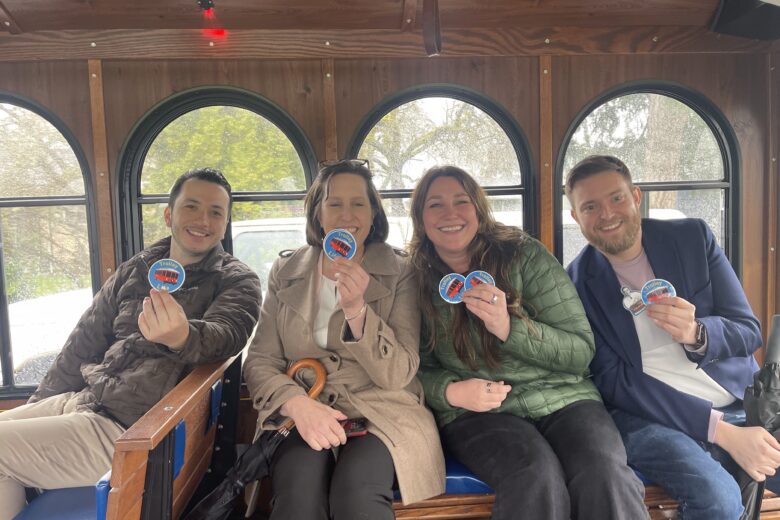
Riding Independence's new trolley. From left: Diego Rubio, mayor Kate Schwarzler, Molly Pyle, and Josh Trujillo.
The Design Session: Turning Insights into Action
Armed with focus group insights, we then collaboratively designed an accelerator program tailored for Independence. The discussion covered community outreach strategies, partnership development, pilot program funding, cross-regional mentorship, and curriculum that blends proven startup methodologies with location-specific insights.
Unlike urban accelerators that might rely on large institutional investments, rural programs often succeed by starting small and proving value before scaling. We explored approaches that could demonstrate impact with minimal initial investment while building sustainable long-term operations.
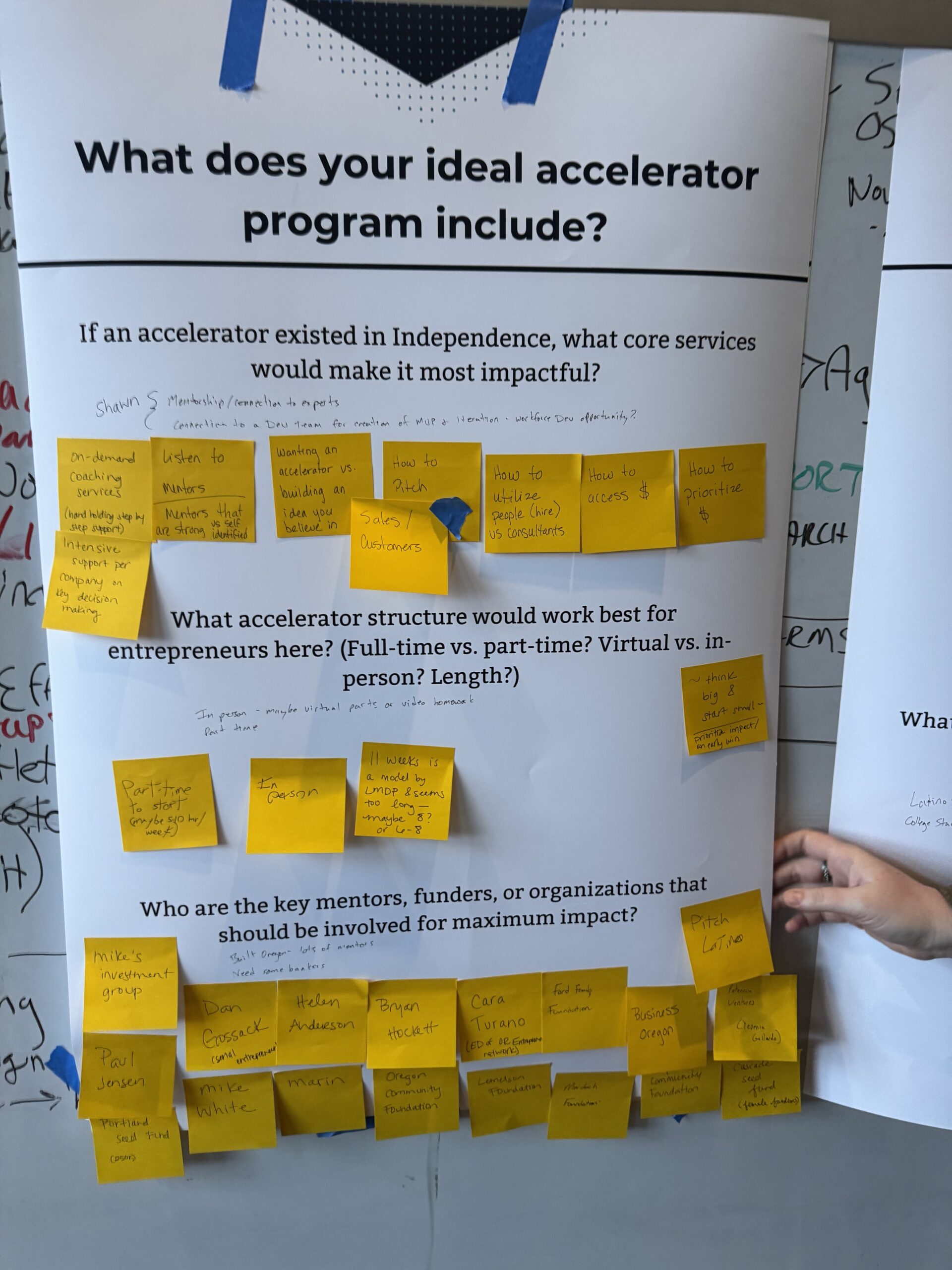
Fail Fest: Learning from Setbacks
Finally, we attended Independence’s annual Fail Fest— where successful entrepreneurs share stories about failures and setbacks. Two local founders shared both practical lessons and emotional support for aspiring entrepreneurs.
This programming exemplifies what makes rural entrepreneurship special: community-building events that provide learning experiences while normalizing the entrepreneurial journey’s inevitable difficulties, and how local role models are invaluable to exemplify success for rising innovators.
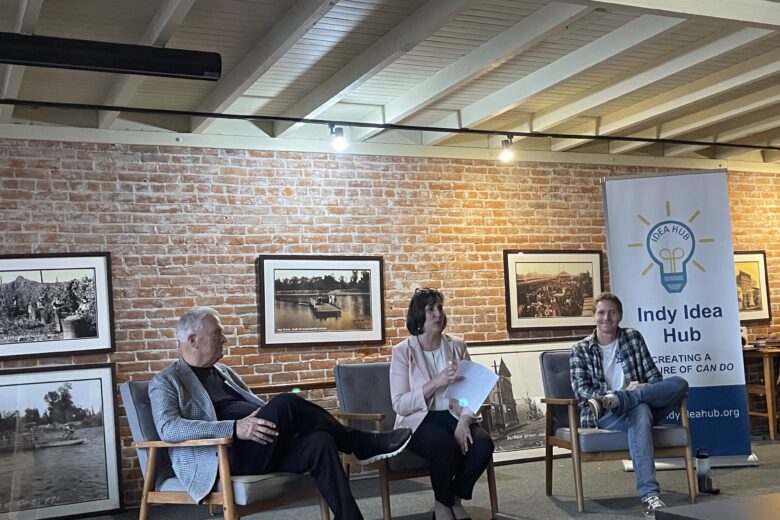
Local entrepreneurs John Spencer and Max Ransom speaking during the Fail Fest event.
Looking Forward: Implementation and Impact
Independence is ready to build a startup accelerator – the founders we met aren’t waiting for the perfect moment; they’re already building, using what makes their town special while connecting with larger markets and networks. What they need now is programming that supports and accelerates their momentum.
Rural America’s entrepreneurial future won’t be built by replicating Silicon Valley in rural places. It will be created by communities like Independence that understand their assets, listen carefully to entrepreneurs’ needs, and design support systems that blend urban innovation practices with rural America’s unique advantages.